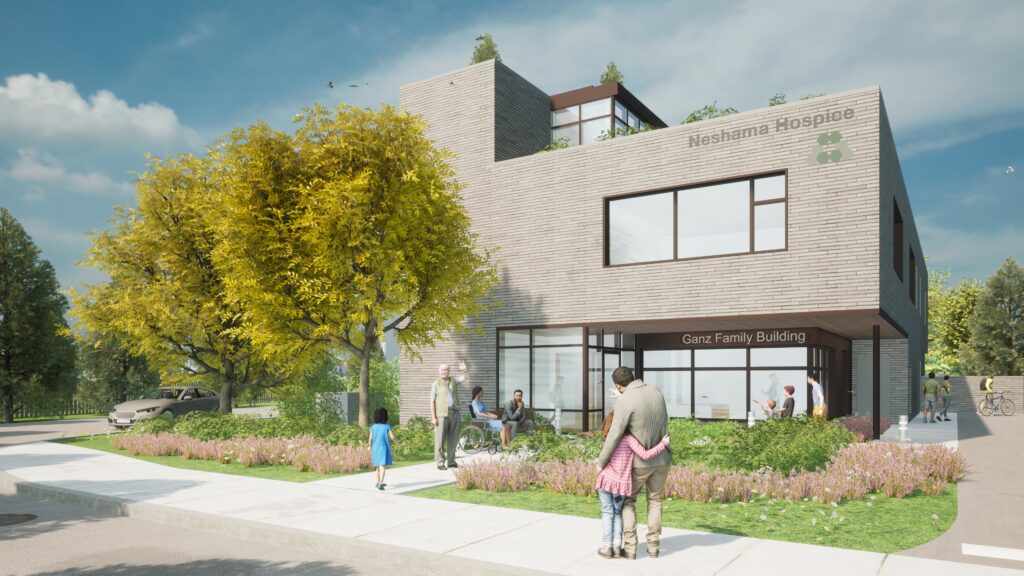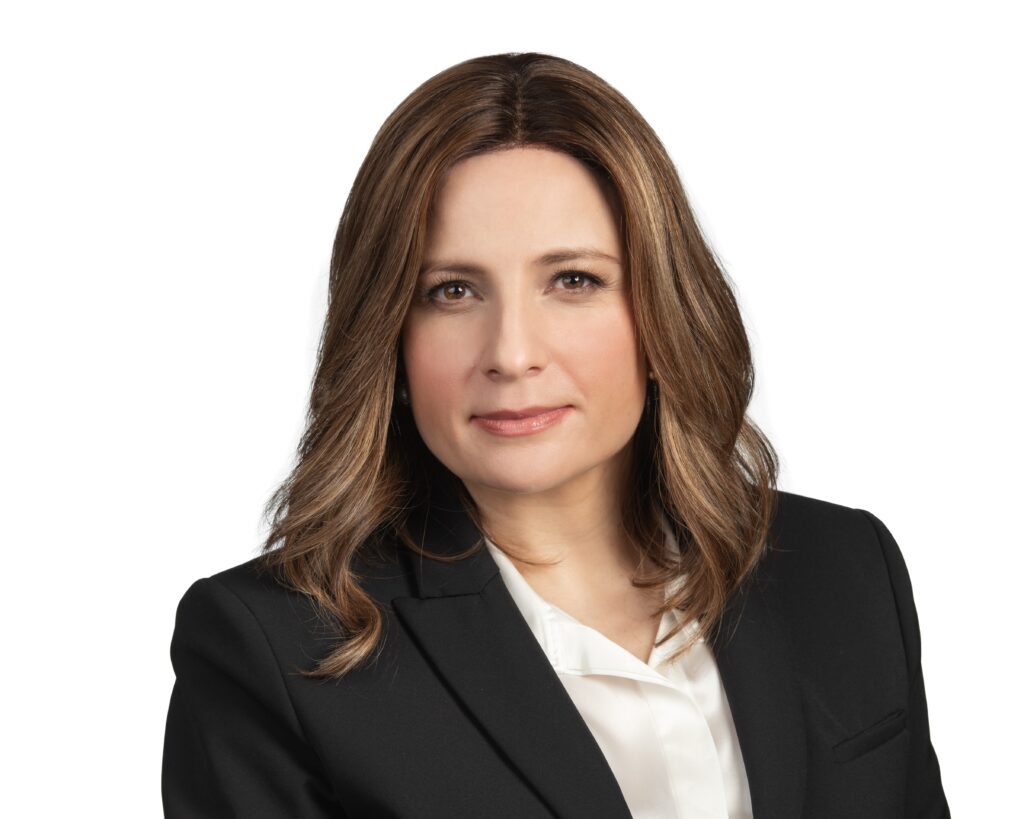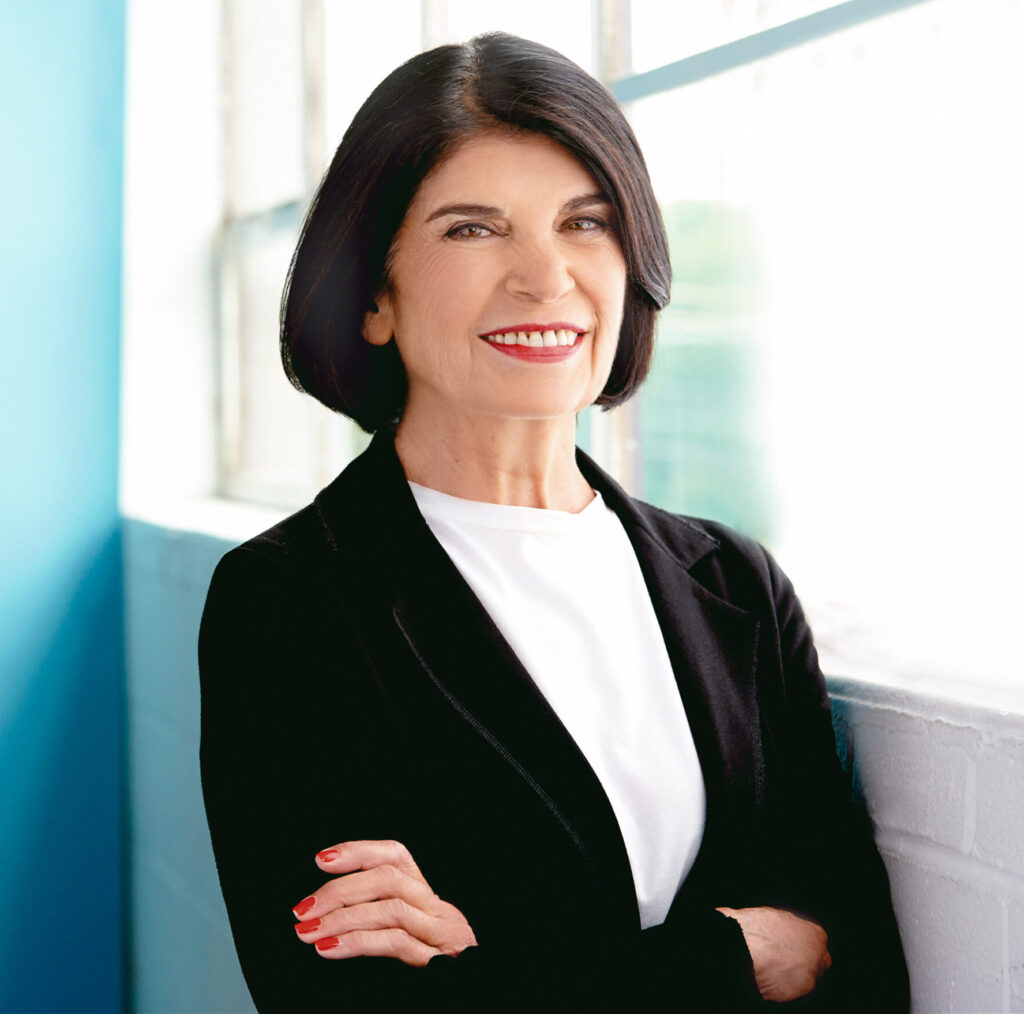FIFSW alumna Lisa Kronenberg leads launch of Jewish-founded Neshama Hospice — North York’s first hospice residence
Categories: Alumni + Friends, Faculty
The end of life is a vulnerable time — not only for the person who is dying, but for everyone around them.
It is especially challenging with our society’s gaps in end-of-life care. Family, friends and caregivers often take on complex care roles while grappling with losing their loved one. And dying in hospital can feel clinical and impersonal — far from the comfort and connection many hope for in their final days.
Neshama Hospice aims to change that.
Now under construction and set to open in fall 2026, Neshama will be the first hospice residence in North York. The 12-bed facility will provide holistic, around-the-clock care in a home-like setting—inspired by Jewish values and open to all Ontarians at no cost.
“Dying is incredibly hard,” says FIFSW alumna Lisa Kronenberg (MSW 2002), Executive Director of the new Neshama Hospice. “We need to take the physical and practical burden off families so they can focus on the things only they can do: the emotional connection, the family relationships, the silly moments, the quiet moments.”
Neshama Hospice to bridge a gap in end-of-life care

Lisa Kronenberg (MSW 2002)
Ontario has a shortage of hospice beds. While the provincial target is seven hospice beds for every 100,000 people, the current average is just 3.5. In North York, there are zero.
“There’s a clear business case for hospice care,” says Kronenberg. Most of us won’t die suddenly. We’ll need timely and holistic support at the end of life. “People don’t want to die in hospitals — they want to die in their communities. And hospice beds cost about half as much as acute care beds.”
Kronenberg’s understanding of this gap is shaped by more than 20 years’ experience in hospice palliative care and grief and bereavement, including her leadership in setting sector standards of care for hospices across Ontario.
Her role in launching Neshama feels like a full-circle moment. Following her FIFSW master’s thesis on the complexity of grief and bereavement, she began to see gaps in end-of-life care first-hand early in her social work career.
She remembers supporting a client who felt that by dying, they were failing — a belief likely shaped by how we often speak about illness as a battle. She also remembers a grieving spouse telling her she hadn’t even noticed her partner’s last breath, because she was so overwhelmed by the tasks of caregiving.
“These were ‘aha’ moments,” says Kronenberg. “I knew we needed to create an environment where end of life is not about failure but about living well — having the right supports in those final days while also dying well – and making those moments meaningful to those we leave behind.”
Rooted in Jewish tradition, serving people of all cultures
Founded by members of Toronto’s Jewish community, Neshama Hospice continues a long tradition of Jewish-led health and social care institutions. While grounded in Jewish values and practices, Neshama is designed to serve people of all cultures, backgrounds and faiths. That cultural responsiveness includes everything from food options to religious observances to trauma-informed care.
For Holocaust survivors and others who have experienced trauma, the end of life can bring up complex emotions. “Death wasn’t normative for this community,” says Kronenberg, whose grandparents were Holocaust survivors and who previously served as Manager of Hospice and Holocaust Survivor Services at Jewish Family and Child Service. “There were no burials, no rituals. That trauma shows up in how Survivors and their families approach the end of life now. There is often a silence about death.”

Faye Mishna
Neshama Board member and FIFSW Professor and former Dean Faye Mishna, herself the child of Holocaust survivors,has experienced how trauma can resurface in her own family. Her mother began calling her numerous times a day near the end of her life.
“At first I was irritated, and then I realized, if she’s anxious, it might be because when she was young, people left and didn’t come back,” she says, adding that she would calmly answer each time, just to reassure her mother she was okay. That was all her mother needed. “That’s the kind of understanding we need to bring to this work.”
Alongside its trauma-informed approach, Neshama will draw from Jewish traditions around grief and mourning.
“Centuries of tradition around supporting the mourner line up incredibly well with what we now understand as best practices,” says Kronenberg. “The Kaddish, for example, is a mourners’ prayer said in a group — it’s essentially an ancient bereavement group.”
As North York is home to large South Asian, Chinese, Filipino, Black and Jewish communities, Neshama is being designed to reflect that diversity — with culturally responsive food, language support, spiritual accommodations and grief practices.
Neshama will also offer support across the continuum — before, during, and after hospice. That includes community-based supports for families in the lead-up to end-of-life, as well as bereavement care after a loss.
“Grief doesn’t start when someone dies. And it doesn’t end at the funeral,” says Kronenberg. “We want families to feel supported when and where they need it.”
Social workers are leaders in hospice care
When someone nears the end of life, it’s not only the individual who is affected — the entire family system shifts.
Social workers are trained to support people within these changing dynamics.
“The loss isn’t only of a person. It’s the changes in roles, structure, routines — and that shows up in different ways over time,” says Mishna, who notes that social workers are skilled in supporting these complex transitions.
She also notes that, once the hospice is up and running, it will offer meaningful practicum and job opportunities for social workers, including FIFSW students and grads.
“Social workers are leaders in this space,” says Kronenberg, emphasizing the versatility of the profession. “One social worker can do systems navigation, facilitate family meetings, advocate, provide professional counselling and support the team. From an employer’s perspective, that’s a high ROI.”
As plans move forward for Neshama to open next year, Kronenberg is honoured to be building a place where the hardest moments aren’t faced alone — and inspired by the role social workers will play in making that possible.
By Carolyn Morris
Related:
- 100 years later, Mount Sinai Hospital continues connecting the community with care
- Alumna invests in strengthening and expanding access to palliative and hospice care through student fellowships
- Practicum partner spotlight: Q & A with Ruth Brickman, Social Worker, Memory Link, Neuropsychology and Cognitive Health, Baycrest
- Practicum partner spotlight: Q & A with Maytal Michaelov, Jewish Family and Child Service of Greater Toronto (JF&CS)